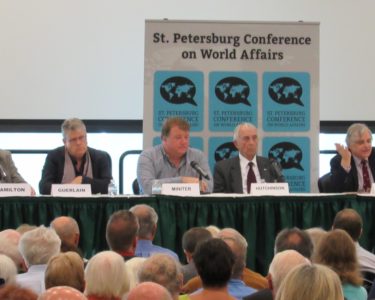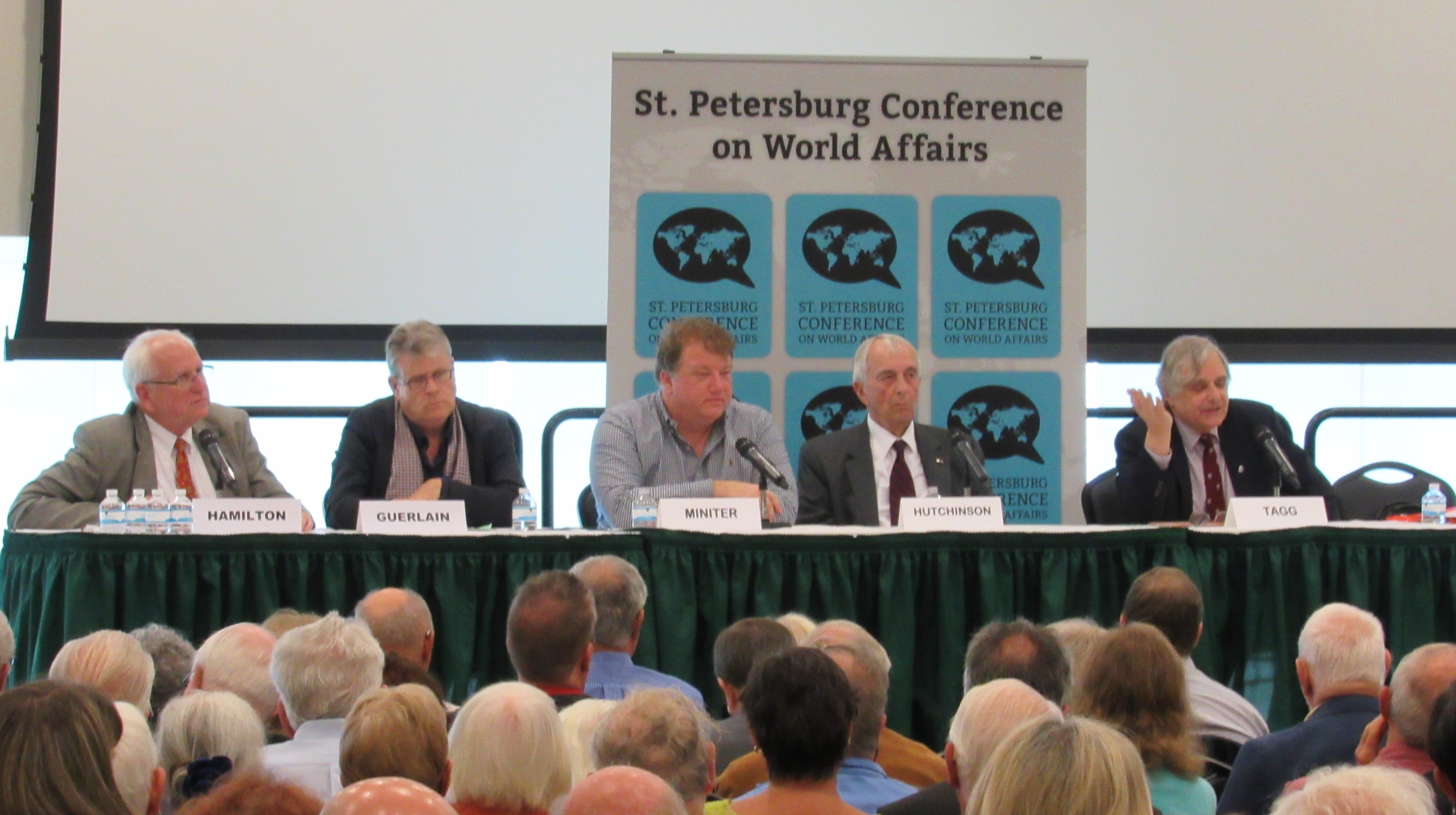When more than 50 experts gather in St. Petersburg next week to discuss international affairs, one name is likely to pervade the three-day conference – Donald Trump.
The new president has set the world atwitter with his appointments, executive orders and rapid-fire tweets, and few dare to predict what he will do next.
“Even relationships with Australia are under the spotlight, and no one would have expected that,” said Dr. Paul Kubicek, a professor and director of the international studies program at Oakland University in Rochester, Mich., who will speak on three panels. “Expectations about how the U.S. behaves have been jettisoned.”
The fifth annual St. Petersburg Conference on World Affairs will be Feb. 15-17 at the University of South Florida St. Petersburg. Sponsors expect about 2,000 people to hear from the diplomats, professors, authors, business executives and artists on 30 panels.
The conference is free and open to the public.

World Affairs The St. Petersburg Conference on World Affairs was co-founded in 2013 by Dr. Thomas Smith and Ambassador Douglas L. McElhaney. Last year the conference brought in around 2,000 people over three days.
Among the topics: “Cyber meddling: what to do about it”; “Here’s a tweet: build that wall and make them pay”; “President Trump’s foreign policy: from tweets to reality”; “After Ukraine, Georgia and Crimea, where is Putin’s next land grab?”; “Music and art: how their impact overpowers political borders”; and “Like it or lump it, fake news is here to stay.”
One of the panelists is Dr. Russell Neuman, a teacher and author who specializes in new media and digital education. He will speak on three panels, including the one on fake news and another on spying.
The Trump administration is working to reflect the president’s bravado, said Neuman.
“His toughness and business style has been to intimidate his opponents, and if he’s successful in intimidating journalists, that will embolden him,” said Neuman. “But the culture of independent journalism is very strong.”
Cynthia L. Hogle, a former diplomat who is studying media narratives about veterans as a doctoral student at the University of Kansas, will also appear on the fake news panel. She said the Trump administration needs to be cautious in its diplomatic discussions.
“A business conversation is different than a diplomatic conversation” like the one Trump had with the Australian prime minister, said Hogle. “He and his advisers need to catch on to the rippling effect of conversations like that.”
Smith co-founded the St. Petersburg conference with Douglas L. McElhaney, a longtime American diplomat and former ambassador to Bosnia and former acting ambassador to France.
The idea came from McElhaney, who retired to St. Petersburg in 2011. He said he wanted to capitalize on his Washington contacts and bring discussions on foreign affairs to the area.
“I worked for the American taxpayer for 35 years; now I want to bring some of that here,” said McElhaney. “I’ve got a Rolodex and a laptop, so what am I going to do?”
McElhaney contacted Smith through a mutual friend and the two began to pull together a group of panelists. Smith turned to academics while McElhaney brought in contacts from his time in the State Department.
The two founders feared that no one would come to the first conference in 2013 – a one-day affair with 10 panel discussions. But it drew around 200 people.
The event has grown significantly since then. Last year it spanned three days and drew about 2,000 people. Smith expects that number again this year.
Smith said that the conference fits well in St. Petersburg, a city better known for its entertainment value.
“We have the Grand Prix and the Rays,” said Smith. “St. Pete has been known more for its athletic events than for its scholarly and public affairs events.”



